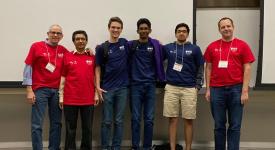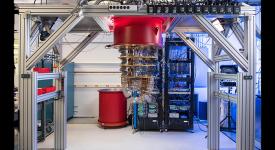Dr. Hovav Shacham Awarded ACM CCS Test-of-Time Award 2019

11/20/2019 - The 26th ACM Conference on Computer and Communications Security (CCS) took place in London last week. Over the years, CCS has established itself as a high standard research conference in the field of information security, and is one of the "big four" security conferences in the world. Each year since 2012, CCS has recognized one or two papers from the conference a decade earlier with a test-of-time award.












